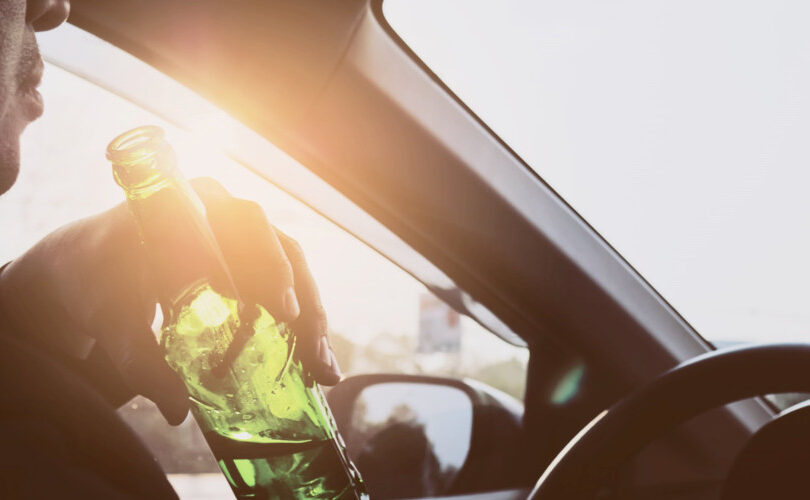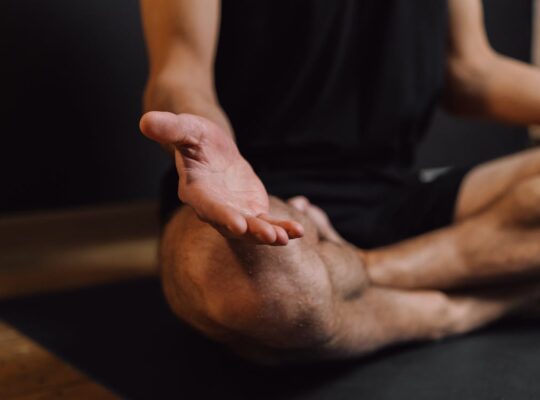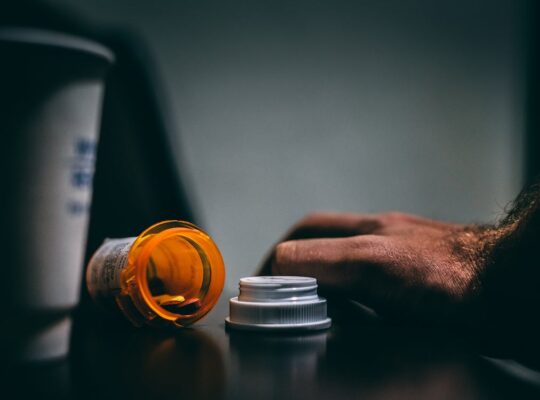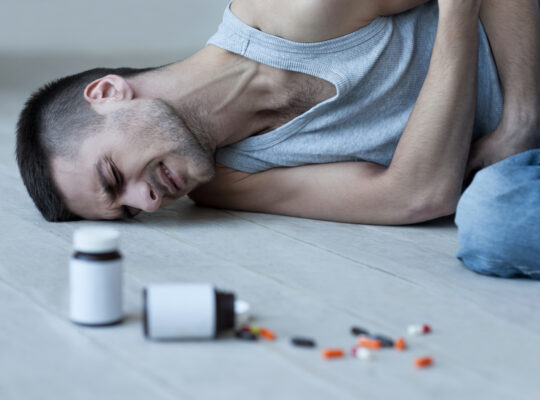Every story starts the same way, “just a few drinks.” It’s the after-work beers, the Saturday braai, the birthday celebration that doesn’t end when it should. South Africa has built its social life around alcohol. It’s our national icebreaker, our lubricant for honesty, our symbol of celebration. But somewhere between the clinking glasses and the blurry goodbyes, something shifts.
For many, alcohol doesn’t just lower inhibitions, it erases them. The line between “fun” and “reckless” disappears, and what started at the pub ends in a police cell. We talk often about the health risks of drinking, but almost never about its legal ones, the fights, the assaults, the crashes, the deaths. The truth is uncomfortable, alcohol is one of South Africa’s biggest crime accelerants, and the damage isn’t abstract. It’s written in blood, loss, and handcuffs.
A Nation Under the Influence
South Africa ranks among the world’s heaviest drinking nations, and our relationship with alcohol is deeply cultural. It’s tied to identity, township taverns, rural shebeens, craft breweries, wine farms. We drink to celebrate, to mourn, to cope, to forget. It’s so normalised that sobriety is often seen as strange.
But beneath the social surface lies a darker reality, nearly 70% of violent crimes in South Africa involve alcohol. That includes murders, assaults, domestic violence, and sexual offences. In police reports across the country, the phrase “the suspect was under the influence” appears so often it’s practically procedural. Alcohol doesn’t cause violence, it reveals it. It removes restraint, amplifies insecurity, and fuels impulsivity. The drink doesn’t plant the seed of aggression, it just waters it.
The Pub That Becomes a Battlefield
Every weekend, hospitals and police stations fill with the aftermath of what we call “social drinking.” Fights in taverns, stabbings outside nightclubs, domestic disputes that turn fatal, all fuelled by alcohol. What makes alcohol so uniquely dangerous is its dual effect, it lowers self-control and raises emotion. That combination is combustible. A small insult becomes a punch. A disagreement turns into a brawl. A jealous glance becomes a death sentence.
Many perpetrators don’t even remember their crimes the next morning. The hangover comes with a police charge sheet, and a lifetime of consequences.
The Quiet Killer
Of all alcohol-related crimes, drunk driving is the most devastating, and the most accepted. We’ve normalised “just one for the road” to the point where death is an acceptable risk. South Africa records thousands of alcohol-related road fatalities every year. Each one begins with a small lie, “I’m fine to drive.” Behind those lies are families destroyed, children orphaned, and futures erased.
What makes it worse is the lack of accountability. Many drunk drivers never face serious punishment. Court systems are overloaded, enforcement inconsistent, and breath tests often contested. As a result, drunk driving remains one of the most common yet under-prosecuted crimes in the country. Every December, during the festive season, police issue warnings, run campaigns, and set up roadblocks. And yet the numbers stay the same. Because this isn’t a policing issue, it’s a cultural one.
Alcohol and Domestic Violence
Inside homes, the damage is even more insidious. Alcohol and domestic violence are tightly intertwined. Studies show that in South Africa, more than half of domestic assaults occur when the abuser has been drinking. Alcohol turns ordinary family conflict into explosions of rage. It creates an environment of fear and unpredictability. Partners and children live with emotional whiplash, a loving parent one day, a violent stranger the next.
And for victims, leaving is complicated. The morning-after apologies sound sincere. “It was the alcohol,” they say. “I didn’t mean it.” But alcohol isn’t an excuse, it’s an accelerant. It brings out what’s already buried, anger, control, resentment. The problem isn’t just the bottle, it’s the behaviour it unleashes.
The Cost to Society
Alcohol-related crime drains billions from South Africa’s economy every year, through hospital admissions, policing, court cases, lost productivity, and incarceration. But the real cost can’t be measured in money. It’s the ripple effect of broken families, trauma, and generational pain.
Children raised in homes plagued by alcohol abuse are more likely to experience violence, drop out of school, and repeat the same cycle. Communities where alcohol abuse thrives also suffer higher unemployment, higher crime, and lower trust.
It’s not just a public health issue, it’s a social collapse issue.
The Prison Pipeline
Many South Africans sitting in prison today never saw themselves as criminals. They saw themselves as drinkers, maybe reckless, maybe careless, but not violent. Yet one night changed everything. A bar fight turned deadly. A car crash killed someone. A moment of intoxicated rage ended in tragedy. The morning after, they woke up sober in a holding cell with no memory of how they got there.
Inside prisons, alcohol-related offences are one of the most common entries. Inmates often speak of deep regret, of wishing they could take back a single decision made under the influence. But once the damage is done, there’s no undoing it. Sobriety in prison isn’t healing, it’s haunting.
When the System Fails Twice
The tragedy is that many of these offenders were themselves victims of addiction. They needed treatment, not just punishment. But South Africa’s rehabilitation system is underfunded and inaccessible for most. In many cases, judges have no option but to hand down prison sentences because there are no treatment programmes available. Prisons, in turn, aren’t equipped to handle addiction. The cycle continues, trauma, substance abuse, crime, incarceration, release, relapse.
We criminalise the symptom instead of addressing the disease.
Alcohol as the Hidden Gateway to Crime
We talk about “gateway drugs” as if they’re exotic or rare. But the real gateway drug is on every supermarket shelf. Alcohol lowers inhibition more predictably than any narcotic. It makes people reckless enough to gamble, cheat, steal, and hurt. It’s not just violent crimes, alcohol fuels financial crime too. Embezzlement, theft, and fraud often occur under pressure from addiction. The craving for the next drink doesn’t care about morals. It cares about access.
That’s why alcohol treatment shouldn’t be a luxury, it should be a public safety measure. Every sober person is one less potential offender, one less broken home, one less emergency room visit.
The Law’s Limitations
South Africa has strict laws around alcohol, on paper. The legal drinking age is 18. There are blood-alcohol limits for driving. There are regulations on where and when alcohol can be sold. But enforcement is inconsistent. Corruption, underfunding, and sheer volume make it almost impossible to control the problem. Tavern owners sell past curfew. Police accept bribes. Drunk drivers talk their way out of arrests. The system bends until it breaks.
Meanwhile, the advertising industry continues to glamorise alcohol. Beer commercials link drinking to success, friendship, and belonging. Spirits are branded as sophistication. There’s no counterweight strong enough to remind people of the morgues, prisons, and rehab centres filled because of those same products.
Recovery, Not Revenge
For alcohol-related offenders, recovery can’t start behind bars, it has to start with understanding. The person who drinks until they hurt someone is not just a criminal, they’re also a product of a system that normalised excess and neglected healing. Rehabilitation programmes that address addiction alongside accountability have far better outcomes than pure punishment. Teaching offenders to take responsibility while also dealing with dependency prevents reoffending far more effectively than incarceration alone.
But that requires resources, empathy, and political will, three things that are in short supply.
Every person imprisoned for an alcohol-fuelled crime leaves behind collateral damage, families, children, and communities that carry the stigma and the struggle. Loved ones oscillate between anger and grief, guilt and shame. Some blame the alcohol. Others blame the system. Most just try to survive the wreckage. And in many cases, the cycle continues, children grow up fearing alcohol but eventually using it the same way their parents did, as comfort, escape, or rebellion.
Without intervention, addiction doesn’t end when someone goes to jail. It just changes location.
Breaking the Chain
Solving alcohol-related crime requires more than moral lectures and harsher laws. It requires cultural honesty. We need to talk about why South Africa drinks, not just how much. We drink to forget, to connect, to escape the grind of inequality and trauma. Until those roots are addressed, the bottle will always win.
We also need accessible rehab centres that work hand-in-hand with the justice system. A drunk driver doesn’t just need a fine, they need mandatory treatment. A violent offender doesn’t just need punishment, they need therapy to unlearn the rage that alcohol amplifies. Rehabilitation should be built into sentencing, not offered as a privilege. Because until recovery becomes a right, prison will keep filling with the same stories in different faces.
The Sobering Truth
Every weekend in South Africa, the same chain reaction plays out: a night of drinking, a moment of madness, a life destroyed. And by Monday morning, the hangovers fade, the excuses return, and the cycle resets. The truth is, alcohol doesn’t just ruin livers, it ruins lives. It blurs judgment, fuels violence, and fills prisons with people who never thought they’d end up there.
The road from pub to prison is short, but it’s paved with denial. Until we stop pretending that alcohol is harmless, we’ll keep burying its victims, and locking up its survivors.







